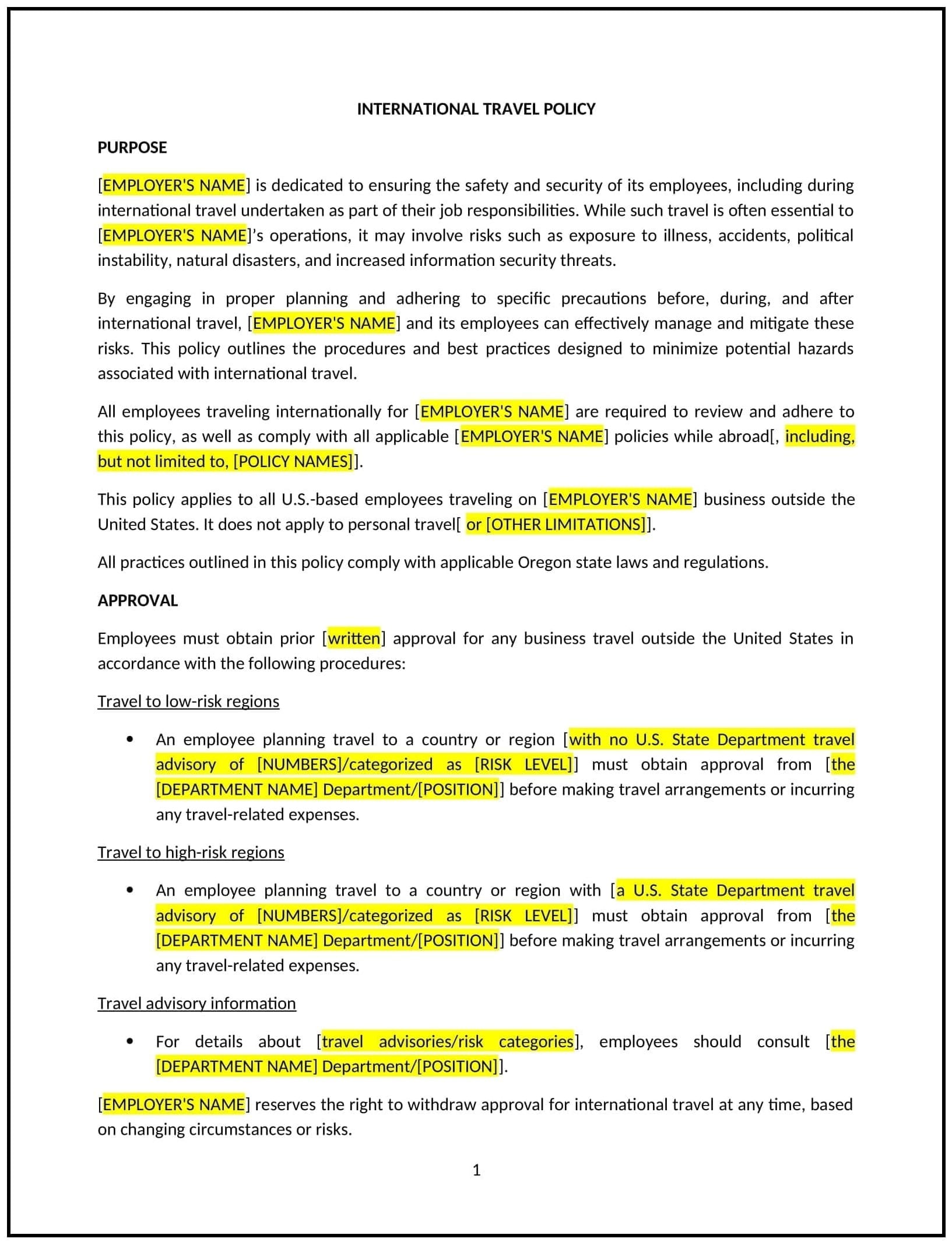International travel policy (Oregon): Free template
Got contracts to review? While you're here for policies, let Cobrief make contract review effortless—start your free review now.

Customize this template for free
International travel policy (Oregon)
This international travel policy is designed to help Oregon businesses manage employee travel abroad for work-related purposes. It outlines procedures for travel approvals, safety measures, and expense reimbursements.
By adopting this policy, businesses can ensure employee safety, control travel costs, and align with best practices for managing international travel.
How to use this international travel policy (Oregon)
- Define travel purposes: Clarify what qualifies as work-related travel, such as client meetings, conferences, or site visits.
- Establish approval processes: Outline steps for employees to request and obtain travel approval, including required documentation.
- Set safety guidelines: Provide resources for employees traveling abroad, such as emergency contacts, travel insurance, and safety protocols.
- Outline expense policies: Specify which travel expenses are reimbursable and the documentation required for reimbursement.
- Monitor travel plans: Track employee itineraries and ensure compliance with the policy.
- Train employees: Educate staff on travel safety, expense reporting, and policy requirements.
- Review and update: Assess the policy annually to ensure it aligns with evolving travel needs and safety concerns.
Benefits of using this international travel policy (Oregon)
This policy offers several advantages for Oregon businesses:
- Ensures employee safety: Provides guidelines and resources to protect employees traveling abroad.
- Controls costs: Establishes clear rules for reimbursable expenses, reducing unnecessary spending.
- Promotes consistency: Offers a standardized approach to managing international travel.
- Enhances compliance: Aligns with best practices for travel management and risk mitigation.
- Supports productivity: Ensures employees can focus on work-related tasks while traveling.
Tips for using this international travel policy (Oregon)
- Communicate clearly: Share the policy with employees and include it in onboarding materials.
- Provide resources: Offer travel safety guides, emergency contacts, and insurance information.
- Monitor compliance: Regularly review travel requests and expense reports.
- Address issues promptly: Take corrective action if employees violate the policy or encounter travel-related problems.
- Update regularly: Revise the policy as needed to reflect changes in travel regulations or business needs.